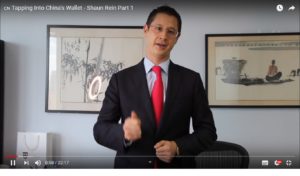
A silent exodus is taking place, as China’s youngsters migrate from the big cities to cheaper and more relaxed places in the country, like Dali in Yunnan, Chengdu in Sichuan, and Xiamen in Fujian, notes branding expert Ashley Dudarenok in the Jing Daily. What does this mean for the larger brands, she explains.
Ashley Dudarenok:
This digital nomadism has a distinctly Chinese flavor. It’s less about roaming the world and more about finding a stable, better base within the country. It represents a mature, pragmatic approach to leveraging technology for lifestyle design, a concept that was unthinkable a decade ago.
This silent exodus is not just a social trend; it’s a seismic shift in consumer dynamics that demands a new strategy from brands.
- Local experiences and pop-ups: Instead of only focusing on flagship stores in Beijing or Shanghai, brands can open curated pop-ups, boutique shops, or co-branded experiences in cities like Chengdu, Xiamen, or Dali. These spaces could serve coffee, offer co-working or creative areas, or host events that resonate with the local lifestyle.
- Lifestyle-oriented products: Products that enhance quality of life, such as premium coffee, artisanal foods, home décor, wellness items, or portable tech for remote work, will appeal to consumers seeking comfort and convenience in smaller cities.
- Value-based marketing: Messaging should highlight sustainability, craftsmanship, and authenticity rather than just luxury or prestige. Consumers in these cities respond more to narratives that reflect who they are and how they live, rather than what they own.
- Integrated living-work solutions: Spaces that combine living, working, and social interaction — think converted apartments or hybrid café-co-working models — could capture this audience, who often rent and adapt homes for both work and life.
The evolution of “Lying Flat” from a protest to a proactive lifestyle choice is one of the most significant social trends in modern China. It signals a generational break from the singular, state-promoted definition of success.
China’s youth are not lazy; they are exhausted by an outdated model. They are using their education, digital tools, and economic privilege to architect lives of meaning on their own terms. Their silent exodus is creating new cultural hubs, empowering a new generation of artisans, and fundamentally altering the consumer map.
For brands, the message is clear: the future of Chinese consumption is not just about what is being bought, but about where and why it’s being bought. Understanding this search for a better life is the key to unlocking the next chapter of growth.
Ashley Dudarenok is a speaker at the China Speakers Bureau. Do you need her at your meeting or conference? Do get in touch or fill in our speakers’ request form.
Are you looking for more experts on cultural change at the China Speakers Bureau? Do check out this list.

